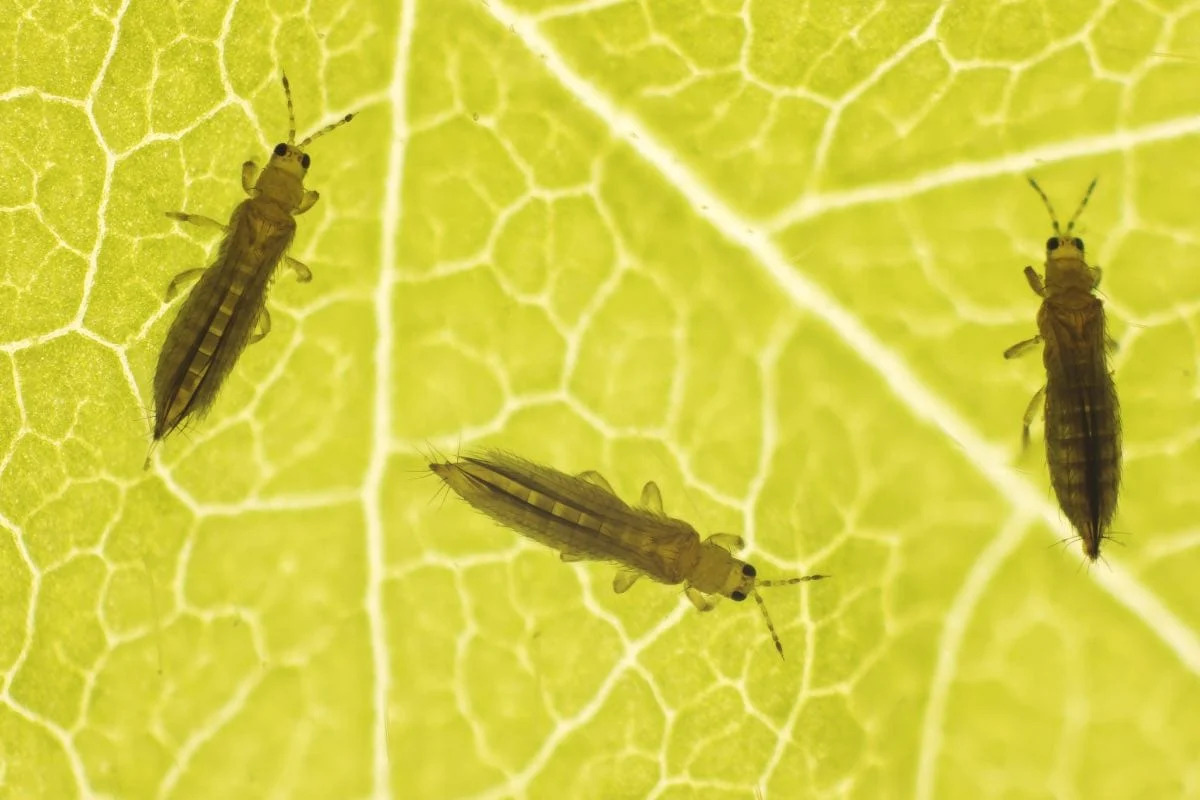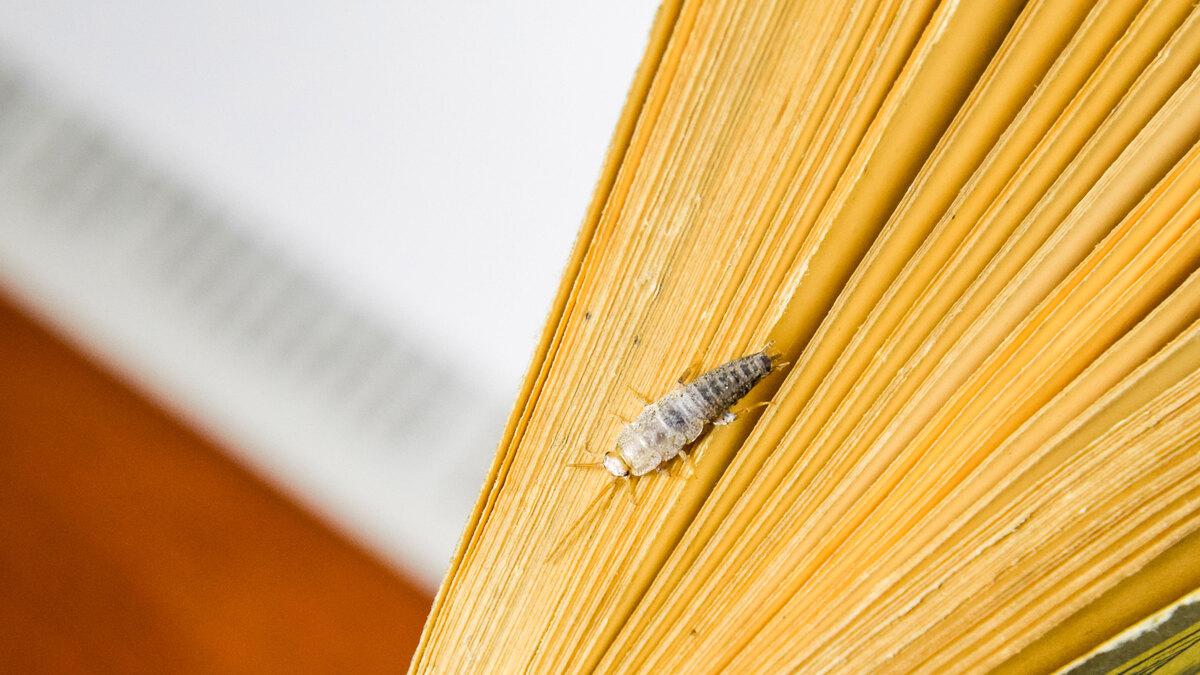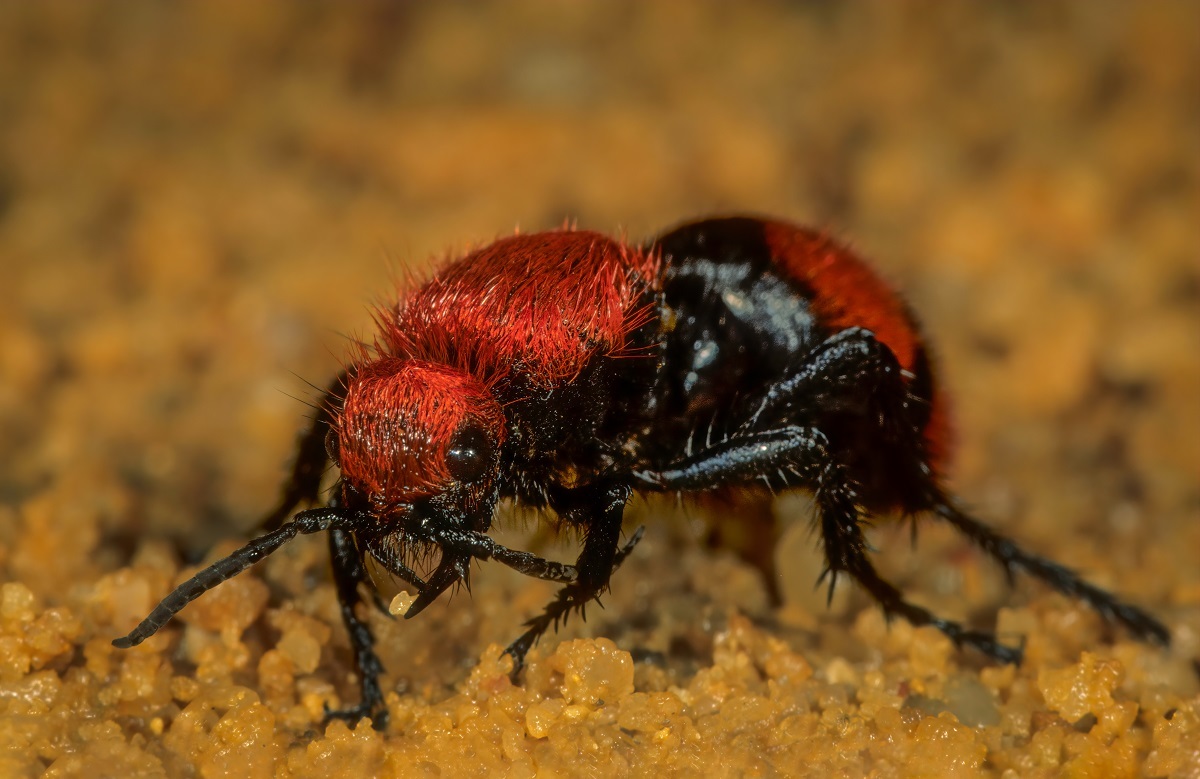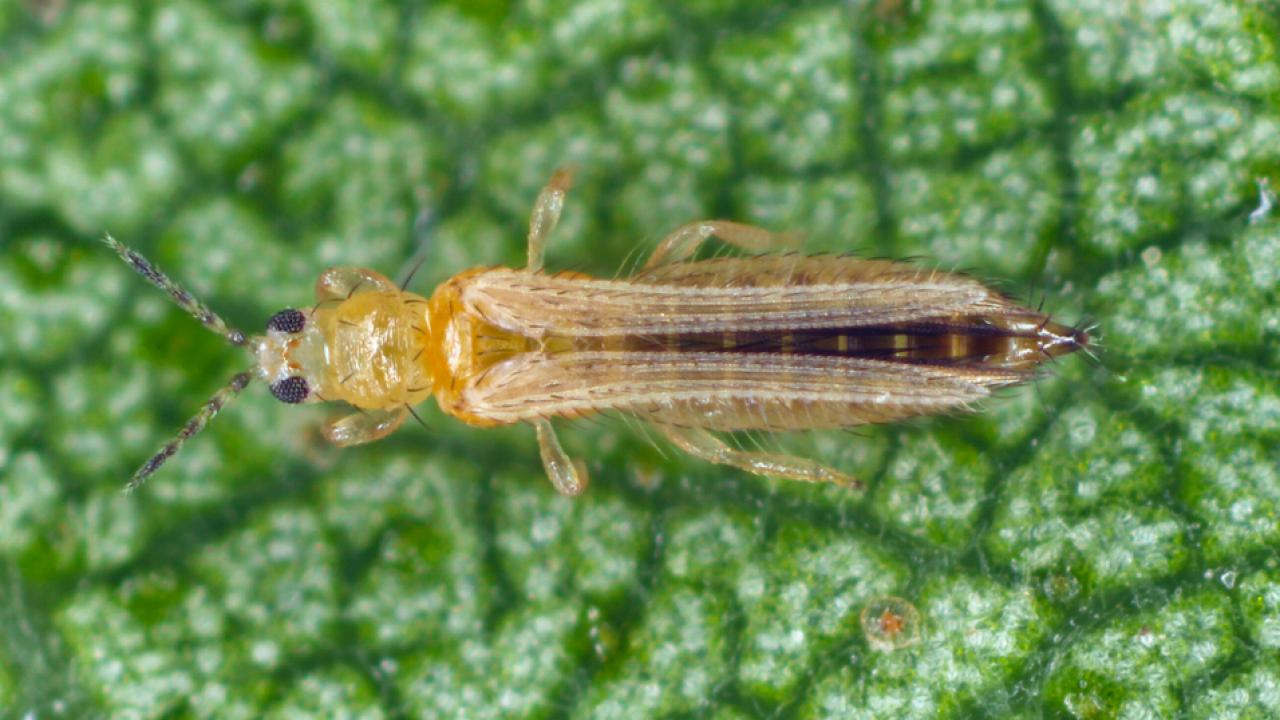Home>Gardening News and Trends>Latest News>What Insects Does Deltamethrin Kill
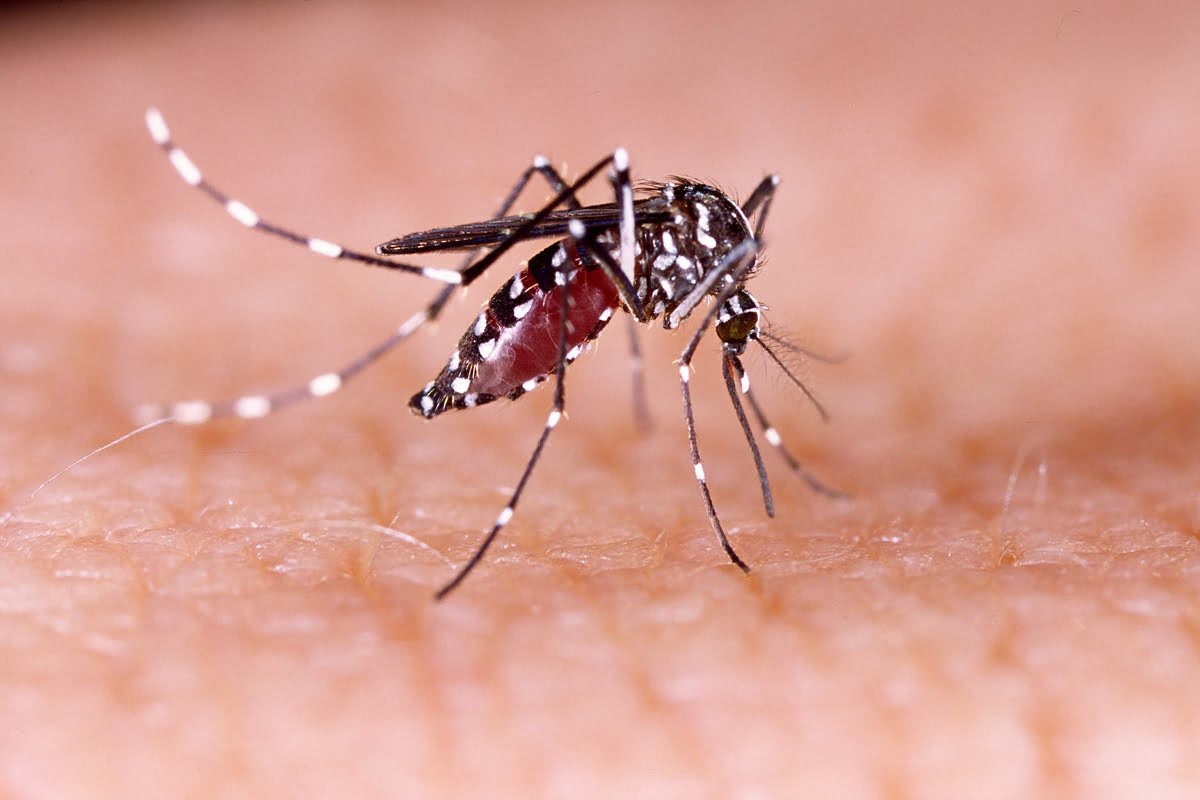

Latest News
What Insects Does Deltamethrin Kill
Published: December 6, 2023
Discover the latest news about Deltamethrin and its effectiveness in exterminating various insects. Stay informed and keep your home bug-free with this powerful solution.
(Many of the links in this article redirect to a specific reviewed product. Your purchase of these products through affiliate links helps to generate commission for Chicagolandgardening.com, at no extra cost. Learn more)
Table of Contents
Introduction
Welcome to our comprehensive guide on the efficacy of Deltamethrin in controlling insect populations. As one of the most widely used insecticides, Deltamethrin has gained popularity for its effectiveness and broad range of applications. Whether you are dealing with a pest infestation at home, in your garden, or in agricultural fields, understanding the capabilities of Deltamethrin can help you make informed decisions about pest control.
Deltamethrin is classified as a synthetic pyrethroid, a group of chemicals derived from naturally occurring pyrethrins found in flowers like chrysanthemums. This powerful insecticide is known for its ability to disrupt the nervous system of insects, leading to paralysis and eventually death.
In this article, we will dive deeper into the world of Deltamethrin, exploring its mode of action, the specific insects it targets, and its overall effectiveness. Additionally, we will discuss safety considerations and its impact on the environment.
Before we proceed, it’s important to understand that while Deltamethrin is highly effective against an array of pests, it is crucial to follow the instructions on product labels and consult professionals when necessary. Safety and responsible use are paramount, both for human health and the environment.
With that said, let’s now explore the fascinating world of Deltamethrin and its impact on insects.
What is Deltamethrin?
Deltamethrin is a synthetic pyrethroid insecticide that has gained popularity in the field of pest control. It is derived from pyrethrin, a natural insecticide found in chrysanthemum flowers. Deltamethrin is known for its effectiveness in controlling a wide range of insects, including mosquitoes, ants, ticks, fleas, bed bugs, and agricultural pests.
As a pyrethroid, Deltamethrin works by targeting the nervous system of insects. It disrupts the normal functioning of nerve cells by binding to sodium channels, preventing the passage of sodium ions. This interference in nerve signal transmission leads to paralysis and, ultimately, the death of the insects.
One of the reasons Deltamethrin is preferred in pest control is its residual activity. It can remain effective for several weeks after application, providing long-lasting protection against insects. This characteristic makes it suitable for both indoor and outdoor use.
Deltamethrin is available in various forms, including liquids, sprays, powders, and granules. It can be applied through different methods such as spraying, dusting, or mixing with water for irrigation purposes. This versatility makes it adaptable to different pest control needs and environments.
It is important to note that Deltamethrin is not selective in its action, meaning it can affect both beneficial and harmful insects, as well as non-target organisms such as bees and fish if used improperly. Therefore, it is crucial to use Deltamethrin with caution and follow label instructions carefully.
While Deltamethrin is available for personal use, it is often recommended to consult professional pest control services for larger infestations or specific situations, like agricultural pest management. Professionals have the expertise to identify the target pests accurately and apply Deltamethrin in appropriate concentrations to achieve optimal results while minimizing risks to non-target organisms and the environment.
In the next section, we will explore how Deltamethrin works in more detail, understanding its mode of action against insects.
How Does Deltamethrin Work?
To understand the effectiveness of Deltamethrin, it is important to delve into its mode of action. Deltamethrin targets the nervous system of insects, disrupting their normal functioning and ultimately leading to their demise.
When Deltamethrin comes into contact with an insect, it binds to the sodium channels in the nerve cells. Sodium channels are responsible for allowing the passage of sodium ions, which play a crucial role in generating nerve impulses. By binding to these channels, Deltamethrin blocks the flow of sodium ions, preventing nerve cells from transmitting signals effectively.
This interference in nerve signal transmission results in a cascade of effects within the insect’s body. Initially, insects experience hyperactivity and muscle spasms as a result of the disrupted nerve impulses. As the paralysis spreads throughout the insect, it becomes unable to feed, breed, or perform vital physiological functions.
One of the reasons Deltamethrin is so effective is its ability to kill insects quickly. Due to its high potency, only a small amount of Deltamethrin is needed to cause significant damage to the nervous system of insects. This rapid action makes it a valuable tool in controlling fast-reproducing and disease-carrying pests.
Another advantage of Deltamethrin is its residual activity. Once applied, it adheres to surfaces, creating a barrier that continues to repel and kill insects for an extended period. This persistent effect makes it an ideal choice for long-term pest control, reducing the need for frequent reapplication.
It is worth noting that Deltamethrin is highly toxic to insects but has a lower toxicity to mammals, including humans, when used as directed. Nonetheless, it is essential to follow safety precautions, such as wearing protective clothing and gloves, when handling and applying Deltamethrin.
In the next section, we will explore the specific insects that Deltamethrin targets and its effectiveness against different pest types.
Target Insects of Deltamethrin
Deltamethrin is known for its broad spectrum of activity, making it effective against a wide range of insect pests. It targets both crawling and flying insects, making it a versatile pest control option for various environments and situations.
One of the primary targets of Deltamethrin is mosquitoes, which are carriers of diseases such as malaria, dengue fever, and Zika virus. Deltamethrin is commonly used in mosquito control programs, both indoors and outdoors, to reduce the risk of mosquito-borne illnesses.
Ants, including fire ants and carpenter ants, are another common target of Deltamethrin. These pesky insects can infest homes, gardens, and agricultural fields. Deltamethrin proves effective in eliminating ant colonies and controlling their population.
Deltamethrin is also effective against ticks, which can transmit diseases such as Lyme disease and Rocky Mountain spotted fever. Applying Deltamethrin to clothing or treating outdoor areas can provide protection against tick bites and reduce the risk of tick-borne infections.
Fleas, notorious for infesting pets and homes, are no match for Deltamethrin. The insecticide effectively kills adult fleas and inhibits the development of their eggs and larvae, helping to break the flea life cycle and eliminate infestations.
Bed bugs, another significant nuisance, can cause sleepless nights and discomfort. Deltamethrin is commonly used to eradicate bed bug infestations, as it is highly effective in eliminating these resilient pests.
Agricultural pests, such as aphids, caterpillars, and beetles, can cause significant damage to crops. Deltamethrin is widely used in farming to control and manage these pests, protecting agricultural yields and ensuring food production.
Additionally, Deltamethrin is effective against other common insects like flies, cockroaches, mites, and many more. Its versatility in targeting a wide array of pests makes it a valuable tool for pest control in various settings.
It is important to note that while Deltamethrin is effective against these target insects, it may not be equally effective against all populations and species. Factors such as resistance development and environmental conditions can impact its efficacy. If you encounter difficulties in controlling pests despite proper use of Deltamethrin, consulting a professional pest control service can provide expert guidance and solutions.
In the next section, we will explore the effectiveness of Deltamethrin on various types of insects in more detail.
Effectiveness of Deltamethrin on Various Insect Types
Deltamethrin has proven to be highly effective against various types of insects. Its broad spectrum activity makes it a reliable choice for eradicating and managing pest populations in different environments. Let’s explore the effectiveness of Deltamethrin on common insect types.
Mosquitoes: Deltamethrin is widely used in mosquito control programs. It effectively kills adult mosquitoes and disrupts their breeding cycle by targeting the larvae. This helps reduce the population of disease-carrying mosquitoes, lowering the risk of mosquito-borne illnesses.
Ants: Deltamethrin is particularly effective against ants, including fire ants and carpenter ants. It can eliminate ant colonies and prevent further infestations when used as directed. Applying Deltamethrin as a barrier treatment around buildings and treating ant trails can provide long-lasting control.
Ticks: Deltamethrin is commonly used to repel and kill ticks. Treating clothing, camping gear, and outdoor areas with Deltamethrin can help prevent tick bites, reducing the risk of tick-borne diseases such as Lyme disease.
Fleas: Deltamethrin is highly effective against fleas, which can infest pets and homes. It kills adult fleas on contact and prevents the development of flea eggs and larvae. Treating pets and their environment with Deltamethrin can help eliminate fleas and break their life cycle.
Bed bugs: Deltamethrin is a valuable tool in the battle against bed bugs. It kills bed bugs at all stages of their life cycle, including eggs, nymphs, and adults. Treating infested areas with Deltamethrin can eliminate bed bug infestations and prevent their spread.
Agricultural pests: Deltamethrin is commonly used in agriculture to control pests that can damage crops and reduce yields. It is effective against a wide range of pests, including aphids, caterpillars, beetles, and mites. Deltamethrin can be applied through foliar sprays or incorporated into seed treatments to protect crops.
Other insects: Deltamethrin is effective against various other insects, including flies, cockroaches, spiders, and mites. It can be used both indoors and outdoors to control these pests, providing long-lasting protection.
It is important to follow label instructions and use Deltamethrin appropriately to achieve optimal results. In some cases, certain insect populations may develop resistance to Deltamethrin. If you encounter persistent pest problems despite proper use of the insecticide, it may be necessary to seek professional assistance for integrated pest management strategies.
Next, we will discuss safety considerations when using Deltamethrin to ensure responsible and effective pest control practices.
Safety Considerations when Using Deltamethrin
While Deltamethrin is an effective insecticide, it is important to prioritize safety when using it. Proper handling and application can ensure the successful management of pests while minimizing any potential risks to human health and the environment. Here are some important safety considerations when using Deltamethrin:
Read and follow label instructions: Before using any pesticide, including Deltamethrin, carefully read and understand the instructions provided on the product label. The label contains important information regarding dosage, application methods, safety precautions, and first aid instructions. Following the label instructions is critical to ensure safe and effective use.
Use personal protective equipment (PPE): When applying Deltamethrin, wear appropriate personal protective equipment, such as gloves, long-sleeved shirts, long pants, and closed-toe shoes. This protective clothing helps minimize skin contact and potential exposure to the insecticide.
Avoid contact with eyes and skin: Deltamethrin can irritate the eyes and skin. Avoid direct contact with the insecticide and wash thoroughly with soap and water if accidental exposure occurs. If irritation persists, seek medical attention.
Keep out of reach of children and pets: Store Deltamethrin in a secure location that is inaccessible to children and pets. As a precautionary measure, keep children and pets away from treated areas until the insecticide has dried or as directed on the label.
Do not apply near water sources: Avoid applying Deltamethrin near bodies of water such as lakes, ponds, streams, or rivers. This is to mitigate the potential risk of contaminating the water and harming aquatic life. Follow specific instructions on the label regarding precautions for water sources.
Proper disposal: Dispose of any unused Deltamethrin according to local regulations and guidelines. Do not pour the insecticide down drains, sewers, or household garbage. Contact your local waste management facility for proper disposal methods.
Consider professional assistance: In cases of severe infestations or if you’re unsure about proper usage, consider seeking professional pest control services. Professionals have the knowledge, experience, and equipment to manage pests effectively while adhering to safety standards.
Always remember that responsible and safe use of Deltamethrin is crucial to protect yourself, others, and the environment. By following these safety considerations, you can effectively manage pests while minimizing potential risks associated with the use of Deltamethrin.
Next, we will discuss the environmental impact of Deltamethrin and its implications.
Environmental Impact of Deltamethrin
As with any pesticide, it is important to consider the environmental impact of Deltamethrin. While it is effective in controlling insect populations, its use can potentially affect non-target organisms and ecosystems. Understanding and mitigating these potential impacts is crucial for responsible pest management. Here are some key considerations regarding the environmental impact of Deltamethrin:
Effect on beneficial insects: Deltamethrin is not selective in its action and can harm beneficial insects such as bees and butterflies if they come into contact with treated surfaces or plants. To minimize impact on pollinators, it is important to avoid applying Deltamethrin to blooming flowers or when bees are actively foraging.
Impact on aquatic life: Deltamethrin is toxic to fish and other aquatic organisms. It is essential to prevent runoff or accidental contamination of water bodies with Deltamethrin. Follow label instructions regarding buffer zones and precautions to protect water sources. Avoid directly spraying near aquatic environments.
Residual effects: Deltamethrin can have residual effects, remaining active on treated surfaces for an extended period. While this provides long-term pest control, it is important to consider the potential accumulation of residues in the environment. Avoid excessive applications and only use Deltamethrin as necessary to minimize environmental impact.
Resistance development: Frequent or excessive use of Deltamethrin can lead to the development of resistance in target pest populations. This means that over time, the effectiveness of Deltamethrin may decrease as pests become less susceptible to its effects. To minimize resistance development, it is important to use Deltamethrin as part of an integrated pest management approach and rotate with other effective insecticides.
Alternative and targeted approaches: Consider using alternative pest control methods that are less harmful to the environment whenever possible. Integrated pest management (IPM) approaches, such as biological controls and cultural practices, can help reduce reliance on chemical insecticides like Deltamethrin.
It is crucial to strike a balance between effective pest control and minimizing potential environmental impacts. By implementing responsible pest management practices and using Deltamethrin judiciously, we can successfully manage pests while safeguarding the environment.
In the concluding section, we will recap the key points discussed in this article about Deltamethrin’s efficacy, use, and impact.
Conclusion
Deltamethrin is a powerful synthetic pyrethroid insecticide that has proven to be effective in controlling a wide range of insect pests. Its mode of action, targeting the nervous system of insects, leads to paralysis and eventual death. Deltamethrin is widely used in various settings, including households, gardens, agricultural fields, and public spaces, to manage pest populations.
Throughout this article, we have explored the key aspects of Deltamethrin, such as its mode of action, target insects, effectiveness on various pest types, safety considerations, as well as its potential environmental impact. Understanding these factors is essential for responsible and effective pest control.
When using Deltamethrin, it is important to read and follow label instructions, use personal protective equipment, and exercise caution to protect yourself and others. Safety precautions, such as storing the product safely and keeping it out of reach of children and pets, are vital.
Furthermore, considering the environmental impact of Deltamethrin is crucial. Taking measures to minimize harm to beneficial insects, preventing contamination of water sources, and avoiding excessive use can help mitigate its impact on ecosystems.
Remember, while Deltamethrin is highly effective, it is just one tool in an integrated pest management approach. Combining it with other strategies, such as cultural practices, biological controls, and alternative methods, can enhance the overall efficacy of pest management while reducing reliance on chemical insecticides.
By understanding the capabilities and considerations of Deltamethrin, we can make informed decisions when it comes to pest control. Whether you are dealing with mosquitoes, ants, fleas, or agricultural pests, Deltamethrin offers a reliable and versatile solution to combat infestations.
Always prioritize safety, follow best practices, and consider seeking professional assistance when needed. With responsible use, Deltamethrin can contribute to effective pest management while minimizing risks to human health and the environment.
